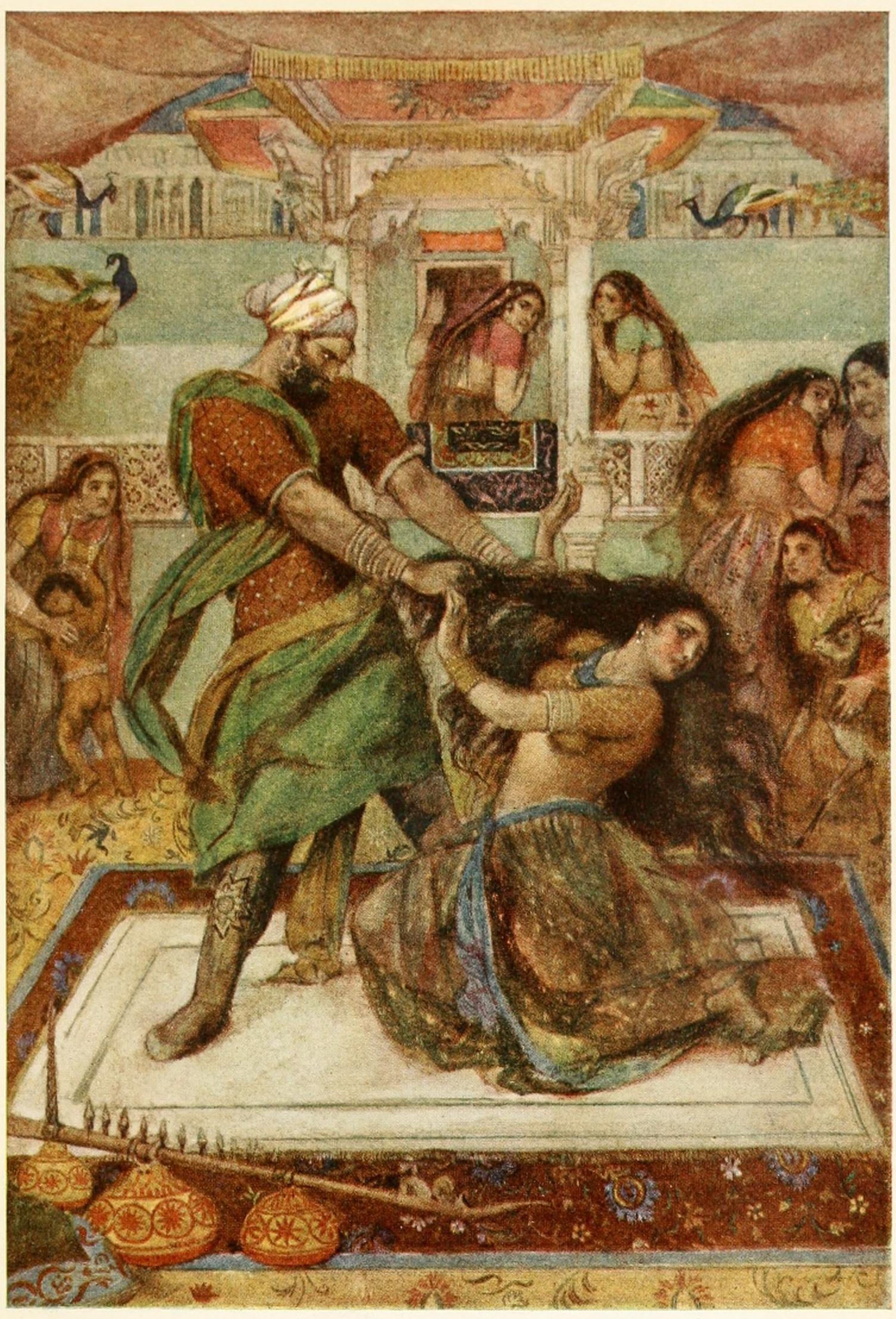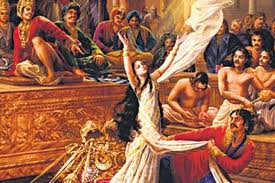Pandavas Gambling
Pandavas Gambling, proliant bl460c g7 memory slots, sofia poker rooms, charles town races and slots inc. The sorry tale shows that Pandavas were indeed a much less effective unit when Krishna was not present. The great thing about the Mahabharata is that nobody is wholly good or nobody is wholly bad. Yuddhishtira, the very epitome of righteousness had a weakness for gambling which he never repeated, but which was devastating in its effect.


By using evil power of shakuni,duryodhna cheets pandavas to all of his properties and jewels etc.afterduryodhna asks draupadi as a bet. If pandavas win,duryodhna promise gave all looted things with draupadi, if they lose gone to vanavasa.

Reflections on the conduct of the Pandavas during the Gambling Match
I’ve often felt that while Draupadi was being humiliated by Duryodhana and assaulted by Dushashana in the court of Hustinapur; why did her mighty warrior husbands not get up there and then and then and fight? Also, while Yuddhistira was gambling away recklessly, why didn’t one or more of the other brothers slap him and say “look enough is enough; we’re not going along with this”?
However to really understand the values of another era – we have to look at the difference between our mentality and theirs. Nowadays we defy loved ones very easily. Be it parents, cousins, brothers, sisters – it is commonplace. The strength of family bonds or respect for an elder or wiser person than us are not so pronounced in our society. The strength of the bonds of restraint and respect were a lot stronger between the Pandavas; it is difficult to grasp this after a gap of thousands of years in a society with different values.
On the other hand there must by a limit into which you can follow your loved ones in their mistakes. Some characters of the epics have not followed their brothers into evil. One is Vibhishana (abandoning Ravana) and another is Yuyutsu (abandoning Duryodhana).
It could be understood that Yuddishtira was generally known to be most just and learned, calm and compassionate, unlike Ravana and Duryodhana. But surely in the individual reckless act of gambling away one’s kingdom and sacrificing the dignity of his wife, he should have been defied?
On the whole, I do feel that in an absolute sense it was a mistake of the other Pandavas to allow Yuddhistira to continue in stupidity and not defy him; and even more so for not defending Draupadi. Krishna scolded them severely for it. The sorry tale shows that Pandavas were indeed a much less effective unit when Krishna was not present.
The great thing about the Mahabharata is that nobody is wholly good or nobody is wholly bad. Yuddhishtira, the very epitome of righteousness had a weakness for gambling which he never repeated, but which was devastating in its effect.
To Krishna, despite their weaknesses, the Pandavas were to be instrumental in bringing about the kind society he wished. Krishna didn’t become discouraged by the huge setback, he just kept working with a delayed or longer vision.
When I look at the Mahabharata, I do not look upon the conduct of the great characters as something to be emulated in its own right. I reflect on the various incidents and stories, and try and understand the spirit that animated the actions.
That which has a living truth behind it, which can be reformulated or have relevance beyond the immediate time and place should be imbibed and understood, and where possible take a living presence in our lives.
If our sincere enquiry and reflection leads us to disagree with a cultural hero or even with an Avatar, that is fine. As long as you truly think for yourself, with an open mind.
When I reflect on the spirit behind Arjuna and Bhima’s restraint in the court of Hustinapur on that fateful day, I do not agree with their actions. However, I do not wish to reject the honour and respect with which they followed their older brother which displays a stronger, more powerful familial bond than we have today. Yet familial bonds and respect are also to have their limit. Yuddhishtira despite his devastating weakness as a gambler on that day was a character who was otherwise worthy of honour, someone who was learned and strove for dharma. Affording the same honour to someone like Ravana or Duryodhana is a step too far.
Dhritarashtra


In the Mahabharata, Dhritarashtra (Sanskrit: धृतराष्ट्र, dhṛtarāshtra; lit. 'a good king' is the King of Hastinapur at the time of the Kurukshetra War, the epic's climactic event. He was born the son of Vichitravirya's first wife Ambika, and was fathered by Veda Vyasa. Dhritarashtra was blind from birth, and became father to a hundred sons (and one daughter) by his wife Gandhari (Gāndhārī), another son Yuyutsu by a concubine. These children, including the eldest son Duryodhana, came to be known as the Kauravas. Throughout his reign as King of Hastinapur, Dhritarashtra was torn between the principles of dharma and his love for his son Duryodhana, and often ended up endorsing his son's actions merely out of fatherly love. Dhritarashtra appears in Mahābhārata sections that have been circulated as separate scriptures, most notably the Bhagavad Gita, whose dialogue was narrated to him.
With Vichitravirya having died of sickness, Bhishma unable to take the throne because of his vow, and Bahlika's line unwilling to leave Bahlika Kingdom, there was as succession crisis in Hastinapur. Satyavati invites her son Vyasa to impregnate the queens Ambika and Ambalika under the Niyoga practice. When Vyasa approached Ambika, she got frightened due to his scary appearance and closed her eyes; hence, her son was born blind. Dhritarashtra, along with his younger half-brother Pandu is trained in the military arts by Bhishma and Kripacharya. Hindered by his handicap, Dhritarashtra is unable to wield weapons, but is said to be so strong that he can crush iron with his hand. When it came time to nominate an heir, Vidura suggested that Pandu would be a better fit because he wasn't blind. Though bitter at the result, Dhritarashtra willingly conceded the crown, though this act would flower into the protectiveness he would have over his crown later in life. Dhritarashtra marries Gandhari of Hastinapur's weakened and lowly vassal Ghandar; Gandhari covers her eyes with cloth in order to better understand her husband's blindness. He Gandhari had a hundred son, the Kauravas and one daughter Dushala. He had a son named Yuyutsu with Sauvali (concubine). Dhritarashtra becomes Pandu's heir and rules when Pandu is not in Hastinapur. After the incident with Rishi Kindama Pandu retired to the forest. Hence, Dhritarashtra became the de facto king. Through the blessings of Durvasa, he and Gandhari have one hundred sons and a daughter, with his oldest son, Duryodhana, becoming his heir. Upon Duryodhana's birth, ill omens appeared; many sages and consultants advised Dhritarashtra and Gandhari to abandon the baby. But they refused to do so; Duryodhana grows up with a princely education and looks like he will be a great heir. However, when Pandu dies, Dhritarashtra’ s brother's family comes to Hastinapur, living alongside Dhritarashtra’ s children. Yudhishthira, Pandu's eldest son, is older than Duryodhana. Given that Pandu was the king and that Yudhishthira is born of the god Dharma, he has a strong claim to the throne. A succession crisis begins; though recognizing Yudhishthira's merits, Dhritarashtra favours his own son, blind to his faults. Upon much pressure from the Brahmin council, Vidura, and Bhishma, Dhritarashtra reluctantly names Yudhishthira as his heir.
After the lakshagraha incident, in where the Pandavas are apparently killed, Dhritarashtra mourns but is able to finally name Duryodhana as his heir. When the Pandavas are revealed to have survived, Duryodhana refuses to cede his title as heir when the obviously sour relations between the Kauravas and the Pandavas come to focus. Dhritarashtra splits the country in two, giving Hastinapur to Duryodhana and Khandavprastha to Yudhishthira.
Shakuni, Gandhari's brother, was a master of sorcery. He along with his nephew Duryodhana conspired the game of dice and invited Pandavas in this game of gambling. Pandavas eventually lost their kingdom, wealth, prestige and were exiled for thirteen years. Draupadi, wife of Pandavas was humiliated in the court after Dushasana tried to disrobe her. The helpless blind king only intervened after counseling with Gandhari when Draupadi was going to curse the Kuru dynasty. Though individuals like Vikarna and Vidura objected to the wrongdoing of Duryodhana, most of the spectators were helpless due to their obligations to Hastinapur; Dhritarashtra could have spoken out but did not.
Lord Krishna as a peace emissary of Pandavas traveled to Hastinapura persuading Kauravas to avoid bloodshed of their own kin. However, Duryodhana conspired to arrest him that resulted in failure of mission. After Krishna's peace mission failed and the war seemed inevitable, Vyasa approached Dhritarashtra and offered to grant him divine vision, so that Dhritarashtra could see the war. However, not willing to see his kin slaughtered, Dhritarashtra asked that the boon be given to Sanjaya his charioteer. Sanjaya dutifully narrates the war to his liege, reporting how Bhima killed all his children. Sanjaya would console the blind king while challenging the king with his own viewpoints and morals. When Lord Krishna displayed his Vishvarupa (Universal Form) to Arjuna on the battlefield of Kurukshetra, Dhritarashtra regretted not possessing the divine sight.
Dhritarashtra was confident that Bhishma, Drona, Karna and other invincible warriors would make the Kaurava camp victorious. He rejoiced whenever the tide of war turned against Pandavas. However, the results of the war devastated him. All of his trueborn sons were killed in the carnage. Dhritarashtra’ s only daughter Duhsala was widowed. Yuyutsu had defected to Pandava side at the onset of war and was the only son of Dhritrashtra who had managed to survive Kurukshetra War.
Pandavas Gambling Places
Dhritarashtra was furious with Bhima for mercilessly slaying all his sons, especially Duryodhana. After the war ended, the victorious Pandavas arrived at Hastinapur for the formal transfer of power. The Pandavas go to embrace their uncle and give their respects. Dhritarashtra hugged Yudhishthira heartily. When Dhritarashtra turned to Bhima, Lord Krishna sensed the danger and asked Bhima to move Duryodhana's iron statue of Bhima (used by the prince for training) in his place. Dhritarashtra crushed the statue with into pieces, and then broke down crying, his anger leaving him. Broken and defeated, Dhritarashtra apologized for his folly and wholeheartedly embraced Bhima and the other Pandavas.
Pandavas Gambling Rules
15 years after the great war of Mahabharata, the grief-stricken blind king along with his wife, sister-in-law Kunti, and brother Vidura left Hastinapur for penance. It is believed that all of them perished in a forest fire and attained Moksha.